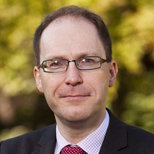Médecins sans frontières
SUGGESTED

The Academy of Medical Royal Colleges, which brings together the presidents of the Medical Royal Colleges and Faculties and so purports to represent nearly every doctor in the UK, is to lead a campaign to tackle rising levels of obesity.
One’s initial reaction might be to welcome a medical intervention aimed at combating something that kills as many as 30,000 people each year. But unfortunately, it is not a medical intervention that these doctors have planned.
According to the BBC, ‘the campaign will start by reviewing the case for fat taxes, promoting exercise, restricting food advertising and other measures. They criticised sponsorship of the Olympics by fast food firms as sending “the wrong message”.’
In other words, rather than sticking to their area of professionalism – medicine – these clinicians have decided that it is far easier to turn to coercion as a way of achieving their desired end of ensuring that we all live longer, healthier lives.
One can understand why fat taxes should appeal to both politicians and to clinicians. As Frank Ramsey taught us, the deadweight cost of raising a set sum through taxation is minimised if it is collected through a consumption tax on goods with a low elasticity of demand.
For politicians, this means the tax is relatively efficient. It also makes it hard to avoid: food in general has an extremely low elasticity of demand – no matter how tight budgets get, people tend to try to find the money to eat – and fatty foods are cheap, pleasant and popular.
As for the doctors, however, one cannot help but think that there is more than a bit of self-interest in the suggestion that the government should add a surcharge to the price of fatty foods, thus (ahem!) larding a government budget, more than a sixth of which is spent on healthcare.
The doctors are also considering limiting freedom of speech by preventing purveyors of foodstuffs from communicating freely with consumers, and telling an international corporation with whom it can do business (Good luck with that!).
What is really striking about this is that the exploratory phase of the campaign, which ‘will try to find out what works’, is not coming from a medical perspective. Rather, the Academy of Medical Royal Colleges has identified what it considers to be the end that society should pursue and is turning to the coercive power of the state to achieve that end.
It seems that, in pursuit of its crusade to make us thin and healthy, the medical establishment is willing to cross any boundary.
3 thoughts on “Médecins sans frontières”
Comments are closed.





To be fair, the tax is efficient for society as a whole and not just for politicians if the target has a low elasticity of demand. However, we could start by imposing VAT on all food. We might need fewer government campaigns against waste if we did that too.
If the ‘fat taxes’ are onerous enough, they will have the desired effect by initiating an ‘epidemic’ of undernutrition. The alleged ‘benefits’ of such a program will be hard to identify.
“Organisations representing nearly every doctor in the UK have united in a single campaign to tackle rising levels of obesity.”
This opening sentence from the BBC news article speaks volumes about the poor coverage and hopeless bias that afflicts the MSM when it reports health issues.
It is factually inaccurate in that UK obesity levels are actually pretty flat and have been for some time but what is far worse is its implication that the vast majority of doctors are represented by the activists involved and therefore support the notion that Coca-Cola should not be sponsoring the Olympics.
Many doctors are members of Royal Colleges, it helps their career development, but unless the Royal Colleges have canvassed their membership on this campaign, it is wrong for them and the media to imply that Terence Stephenson represents the majority of UK doctors.
People like Stephenson live privileged lives because of their background and their profession. They are respected, never out of work and paid handsomely by the state with an opportunity to generate even more wealth by working privately.
The Coca-Cola Company produces a best selling product that is less calorific by volume than pure orange juice. It is successful because many people like it. It offers two zero calorie alternatives to its top product and has spent a fortune advertising them. It provides funding that allows athletes from much less privileged backgrounds than Stephenson to come to London and compete in the Olympic Games.
Some things are more important than medical statistics and the pompous would be politicians that harass us with them. In fact, most things are.